
Is It Bad to Sleep With a Necklace On?
Is it bad to sleep with a necklace on? The short answer is yes—for both your safety and the longevity of your jewelry. Wearing a necklace overnight increases the risk of strangulation, tangling, and skin irritation, especially if you have metal allergies or sensitive skin. Necklaces can trap moisture, encourage bacterial growth, and suffer from friction against bedding, which speeds up tarnishing and wear. Experts recommend taking off your jewelry before bed to protect your skin and keep your pieces in top condition. If you're looking for styles that are gentler and easier to care for, check out our Thin Gold Necklace collection.
Common Reasons People Sleep With Necklaces
Although wearing jewelry during sleep isn't universally recommended, many people choose to keep their necklaces on overnight for various reasons.
You might feel a strong sentimental value attached to a necklace, such as a family heirloom or a gift from a loved one, making it emotionally challenging to remove. Some individuals report that continuous wear provides psychological comfort or a sense of connection.
For others, necklaces serve as a consistent fashion statement, and removing them disrupts their personal style or routine. Additionally, convenience plays a role—if your schedule is hectic, you may forget or find it inconvenient to remove jewelry nightly.
While these motivations are common, clinicians generally advise evaluating your specific circumstances before making nighttime necklace-wearing a habitual practice.
Potential Health Risks of Sleeping With a Necklace
While keeping a necklace on overnight might seem harmless, you should be aware of several potential health risks. Certain necklace materials, such as metals or plastics, can pose a strangulation hazard if the chain becomes tangled during sleep. This risk is especially significant for individuals who move frequently at night or experience sleep disturbances, increasing the chance of accidental tightening around the neck.
Additionally, some necklace clasps or pendants may exert localized pressure, potentially leading to discomfort or mild bruising. If you wear a necklace with small components, there’s also a minor risk of choking should a piece break off.
It’s advisable to assess both the design and materials of your necklace before deciding to wear it to bed, prioritizing your nightly safety and comfort.
Can Necklaces Cause Skin Irritation or Allergies?
Beyond physical safety concerns, the materials in your necklace can also affect your skin. If you have a history of skin allergies or metal sensitivity, wearing a necklace overnight increases the risk of contact dermatitis.
Common culprits include nickel, cobalt, and even certain gold alloys. Prolonged exposure, combined with sweat and friction during sleep, can intensify irritation, leading to redness, itching, or blistering. Clinical studies confirm that repeated contact with allergenic metals may worsen symptoms over time.
If you notice any discomfort or skin changes where your necklace rests, it’s prudent to remove it before bed.
Consider hypoallergenic options, such as surgical-grade stainless steel or pure gold, to minimize risk. Always consult a dermatologist if you experience persistent reactions or uncertainty about metal sensitivity.
Risk of Tangling and Choking Hazards
Necklaces can present significant risks of tangling and choking when worn during sleep, particularly if you move frequently or wear longer chains.
Clinical evidence suggests that necklaces may wrap around your neck or limbs, leading to constriction or even accidental strangulation, especially in children and individuals with medical conditions affecting mobility.
Tangling prevention becomes difficult as you shift positions unconsciously, increasing the likelihood of knots, twists, or entrapment.
Choking awareness is vital; a tightly tangled necklace can obstruct your airway or impair circulation.
Healthcare professionals recommend removing necklaces before sleep to minimize these hazards.
If you must keep your jewelry on, opt for short, breakaway chains designed for safety.
Prioritizing tangling prevention and choking awareness will help you avoid unnecessary health risks while sleeping.
Impact on the Longevity of Your Jewelry
Although it may seem harmless, sleeping with a necklace on can accelerate wear and tear, ultimately reducing your jewelry’s lifespan.
During sleep, repetitive friction against bedding and your skin can cause micro-abrasions on the metal surface, compromising metal durability over time. Clasp mechanisms and chain links are particularly vulnerable to stress and distortion when subjected to nightly movement. This can result in weakening or even breakage, especially in delicate pieces.
Additionally, exposure to sweat during sleep may increase the risk of tarnish or corrosion, depending on the metal composition.
For ideal jewelry maintenance, clinicians recommend removing necklaces before bed. This simple precaution preserves the structural integrity and aesthetic value of your jewelry, reducing the need for frequent repairs or premature replacement.
Effects on Sleep Quality and Comfort
While protecting your jewelry is important, wearing a necklace to bed can also disrupt your sleep quality and physical comfort.
Clinical studies indicate that foreign objects, such as necklaces, may contribute to sleep disturbances by causing pressure points, entanglement, or skin irritation during nocturnal movements. You might notice that your comfort levels decrease as the chain shifts, potentially leading to micro-awakenings or restlessness.
Even lightweight necklaces can press against sensitive areas of your neck, increasing the risk for discomfort or mild abrasions.
Healthcare professionals recommend optimizing your sleep environment to minimize external irritants. If you frequently experience disrupted sleep, consider whether jewelry could be a contributing factor and remove necklaces before bed to enhance restfulness and decrease the likelihood of sleep disturbances related to physical discomfort.
What Types of Necklaces Are Safer to Wear Overnight?
If you choose to sleep with a necklace on, selecting specific types can mitigate some potential risks.
Opt for necklaces made from lightweight materials such as silk cords, fine gold chains, or nylon, as these reduce pressure on your neck and decrease the likelihood of skin irritation or pressure injuries.
Adjustable designs are preferable, allowing you to customize the fit and minimize the risk of entanglement or constriction during sleep.
Avoid bulky pendants or sharp-edged components, as these can cause discomfort or abrasions.
Magnetic clasps or breakaway features offer an added safety mechanism, allowing the necklace to release under tension.
Always assess for potential allergic reactions to metals or coatings by monitoring your skin for redness, itching, or swelling after overnight use.
Expert Recommendations for Nighttime Jewelry Use
Because potential complications can arise from wearing jewelry overnight, experts generally advise removing necklaces before sleep to minimize risks such as skin irritation, allergic reactions, or accidental strangulation.
Dermatologists note that prolonged exposure to metals can disrupt the skin barrier, particularly if you sweat during sleep. While fashion trends may encourage continuous necklace wear, clinical guidelines prioritize your safety and skin health.
Allergic contact dermatitis, pressure marks, and even airway obstruction in rare cases are possible. Although your personal preference and comfort play a role, it's prudent to weigh these against evidence-based risks.
If you have sensitive skin or a history of allergies, err on the side of caution. Ultimately, removing necklaces at night aligns with best practices for health and minimizes preventable complications.
Tips for Caring for Necklaces Worn Regularly
Even when you choose to wear a necklace daily, consistent and proper care is essential to maintain both skin health and the longevity of your jewelry.
First, assess your necklace materials—gold, silver, stainless steel, or costume metals each require specific care protocols. Hypoallergenic metals may reduce the risk of contact dermatitis.
Cleaning techniques should align with the material; for example, use a mild soap and water solution for gold or silver, and avoid harsh chemicals that can cause degradation or skin irritation.
Dry your necklace thoroughly before wearing it again to minimize microbial growth. Store your jewelry in a clean, dry place to prevent tarnishing.
Regularly inspect clasps and chains for damage, as broken components may increase the risk of skin injury or loss.
Frequently Asked Questions
Can Sleeping With a Necklace Affect Dreams or Sleep Patterns?
You won't find scientific evidence linking necklaces to altered dream symbolism or sleep quality. However, if physical discomfort or anxiety arises, you could experience sleep disturbances. Clinically, it's advisable to prioritize comfort and minimize nocturnal risk factors.
Are Certain Gemstones More Prone to Damage Overnight?
Certain gemstones, like opals and pearls, exhibit lower gemstone durability and are more susceptible to scratches or fractures. For ideal night time care, you should remove jewelry containing these materials to minimize mechanical stress and prolong longevity.
What Cultural Beliefs Exist About Wearing Jewelry During Sleep?
You’ll find that cultural significance and spiritual beliefs often influence recommendations about wearing jewelry during sleep. Some traditions encourage it for protection or luck, while others advise against it. Always consider personal risk factors and clinical guidelines.
Is It Bad Luck to Remove a Gifted Necklace at Night?
Current evidence doesn't support the idea that removing gifted jewelry at night brings bad luck. While some nighttime superstitions exist, you can prioritize comfort and safety. Clinicians recommend removing jewelry to reduce risks like skin irritation or entanglement.
Can Sleeping With a Necklace Interfere With Sleep Tracking Devices?
Wearing a necklace may reduce necklace comfort and potentially interfere with sleep tracking devices by causing skin irritation or movement artifacts. You should assess if the necklace affects sleep quality and consult clinical recommendations regarding wearable compatibility for ideal results.
Conclusion
While it might seem harmless to sleep with a necklace on, clinical evidence suggests you’re increasing your risk of skin irritation, allergic reactions, and even accidental injury from tangling or choking. Jewelry can also degrade faster with nightly wear. To protect your health and your necklace, it’s best to remove it before bed. If you choose to wear one overnight, opt for hypoallergenic, secure, and simple designs, and monitor for any signs of skin or sleep disturbances.








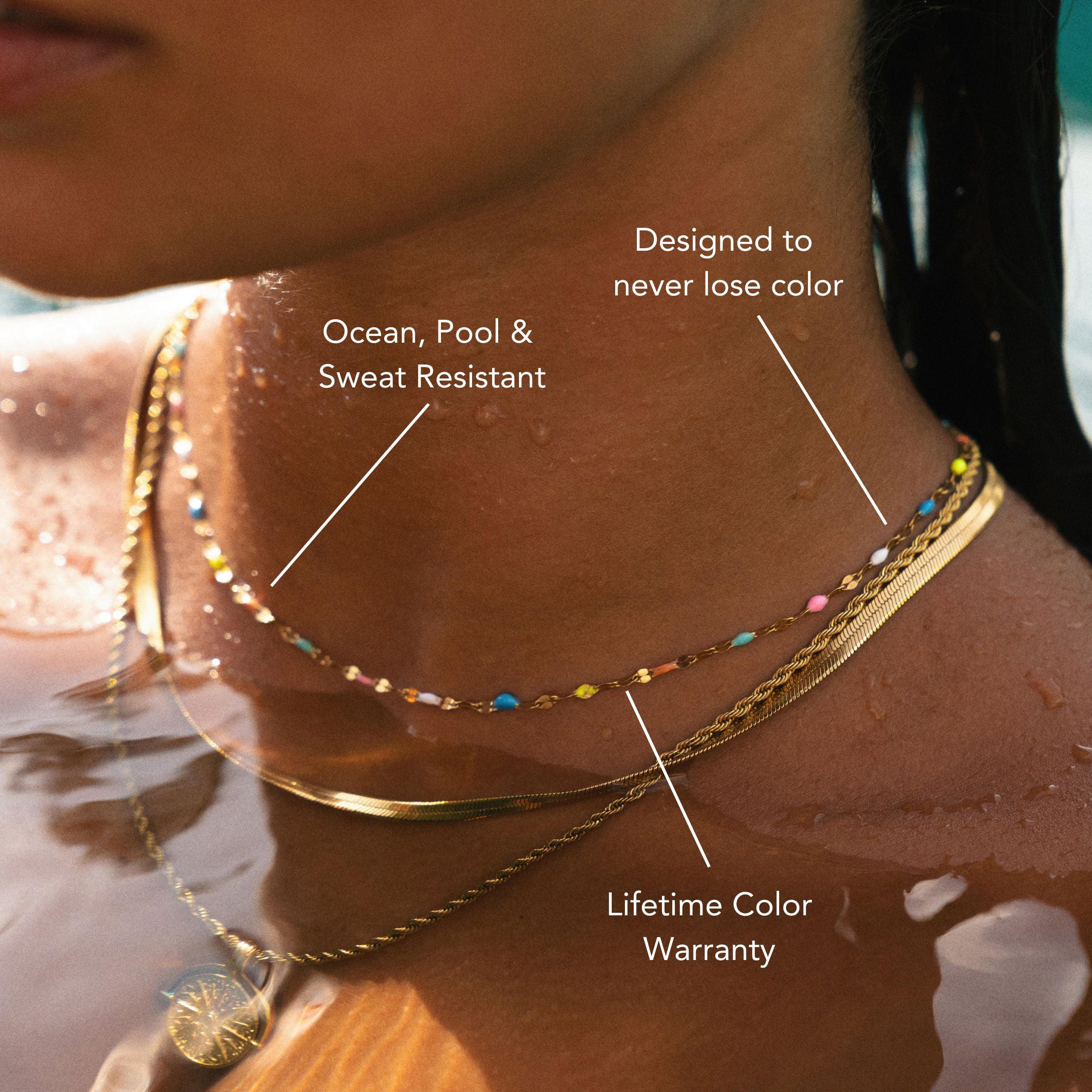




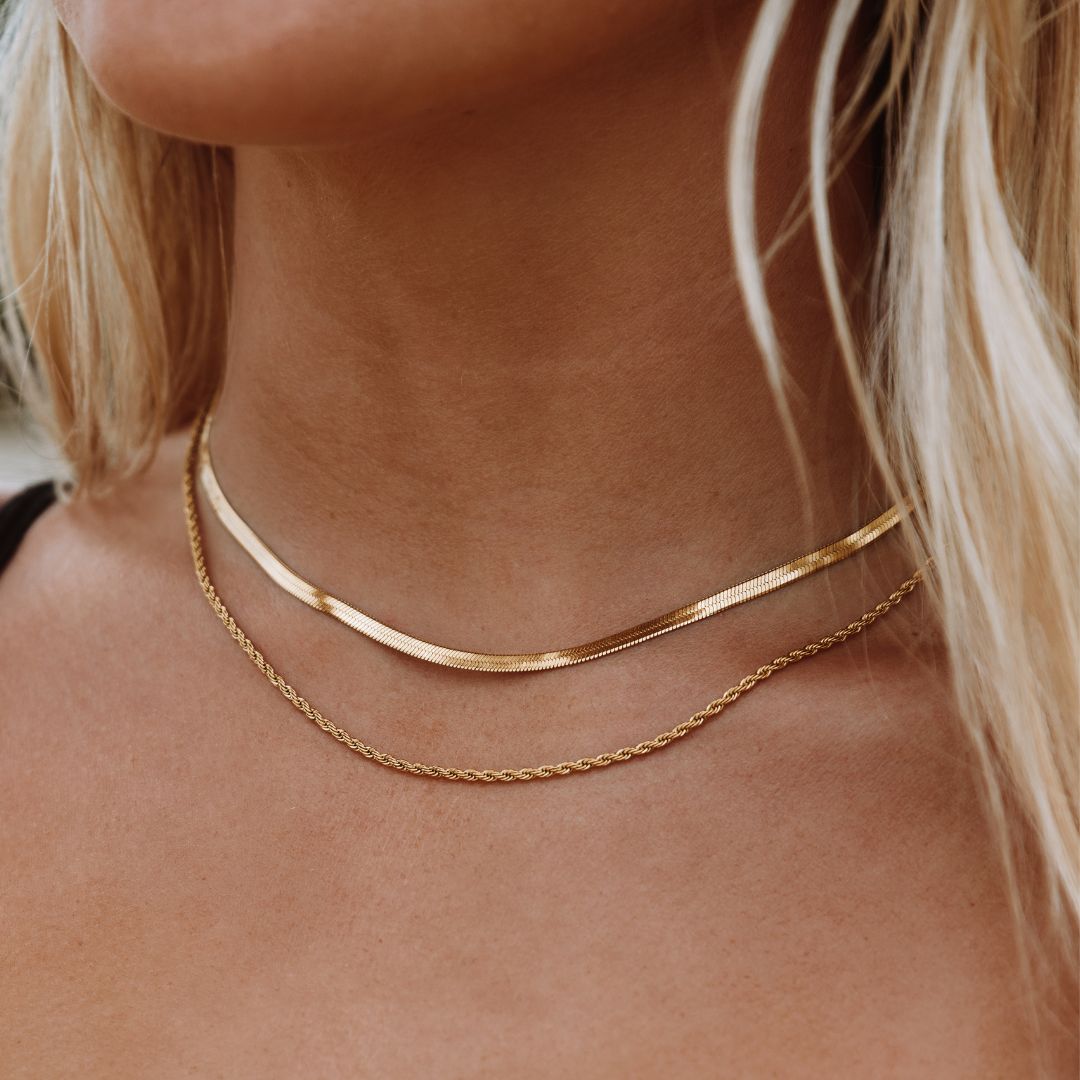

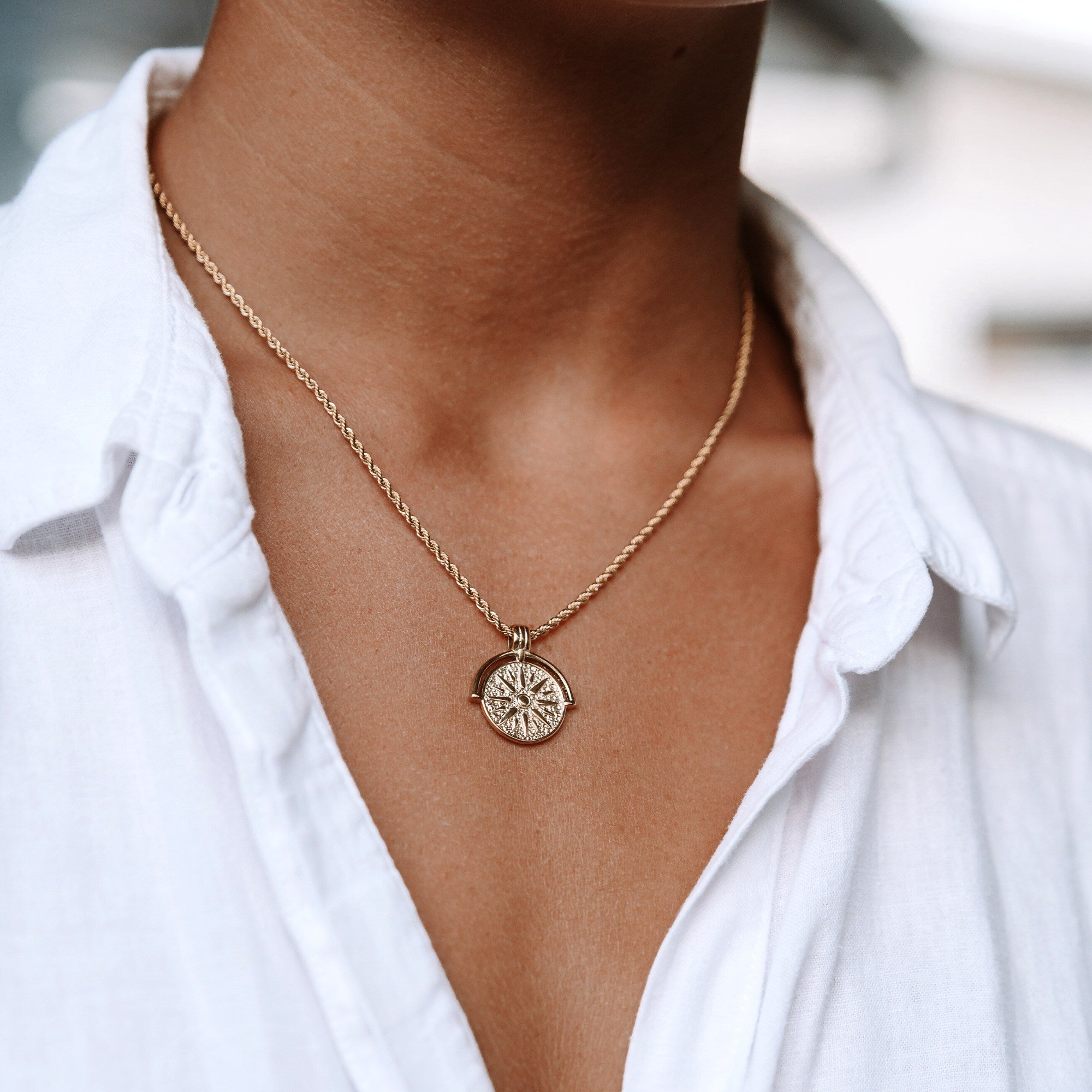

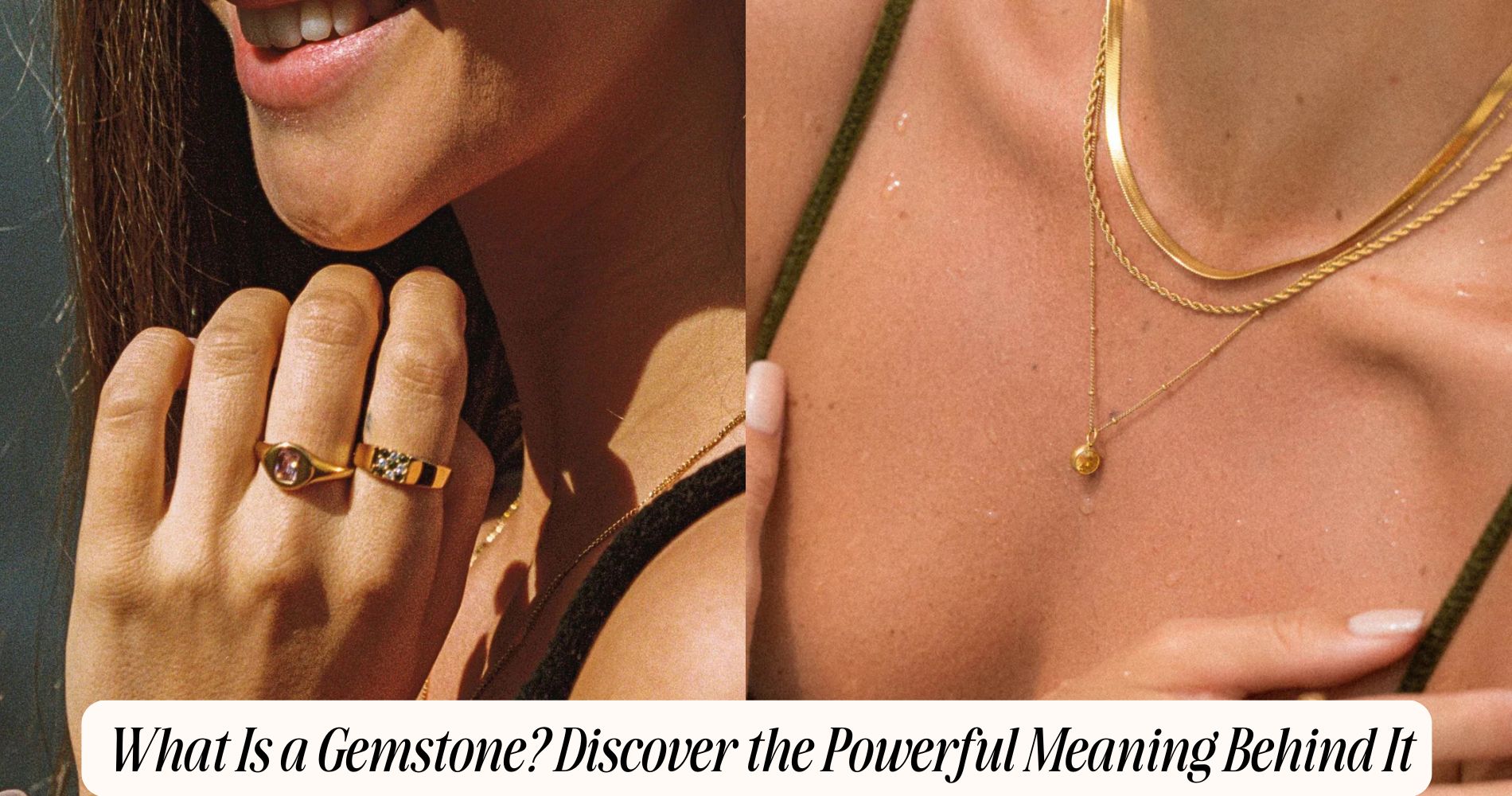
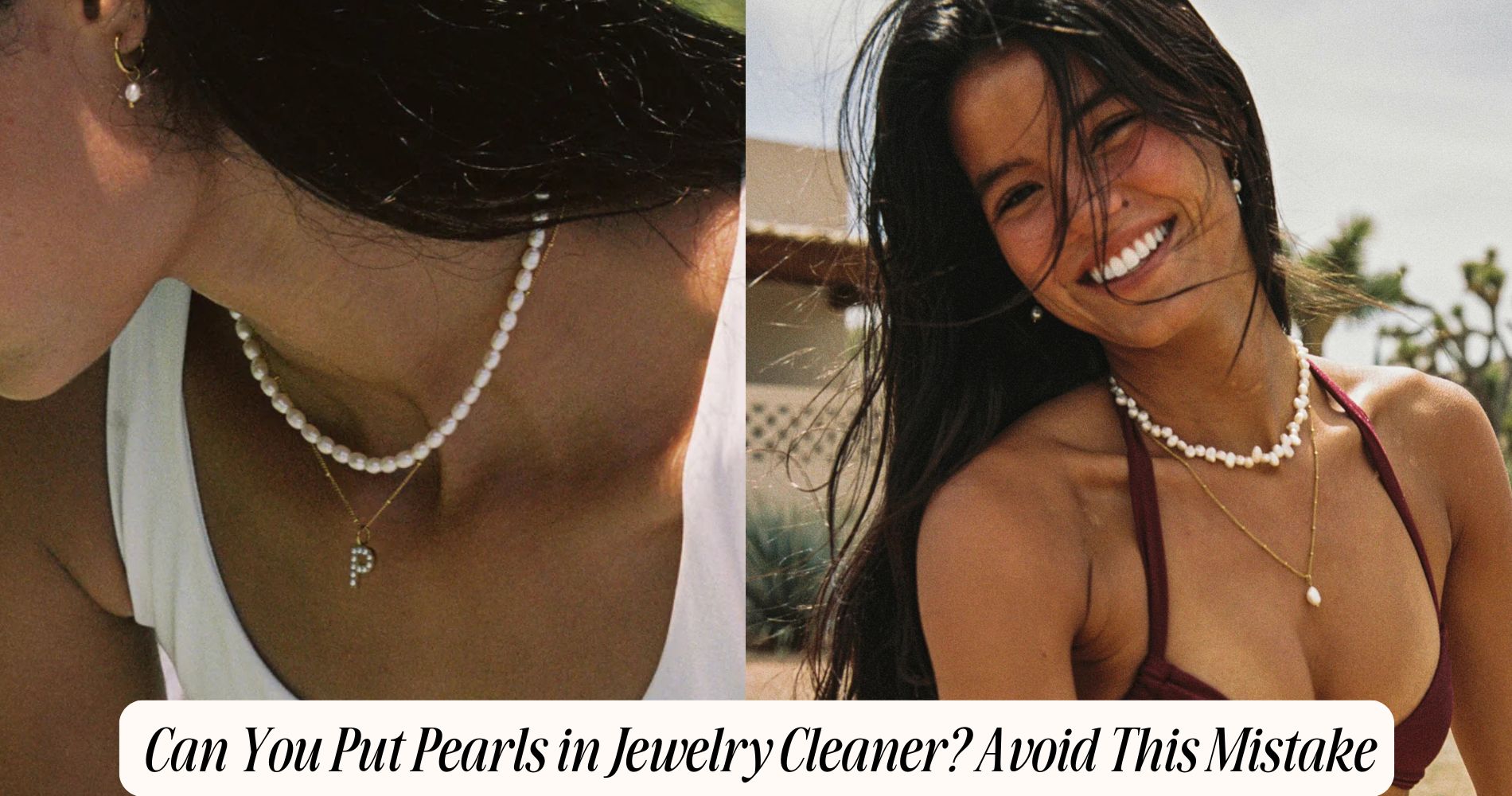




コメントを書く
このサイトはhCaptchaによって保護されており、hCaptchaプライバシーポリシーおよび利用規約が適用されます。